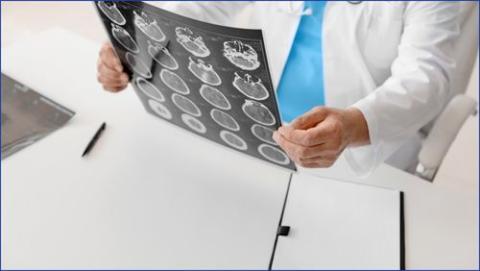
An exciting new piece of international research, led by our colleagues in FurtureNeuro, could lead to the prevention of epilepsy in patients who have experienced a traumatic brain injury in the future.
A traumatic brain injury is one of the known causes for developing epilepsy and we regularly support people who have developed epilepsy because of a traumatic brain injury. There is currently no method to predict or prevent epilepsy in those who have experienced a traumatic brain injury.
The new research led by FutureNeuro – which also involved researchers from Trinity College Dublin – has identified a receptor in the brain called P2X7. It has been found that this receptor is a key driver in abnormal brain activity associated with epilepsy following an injury.
The researchers have found that by blocking the activity of this receptor following an injury, there were much improved outcomes in preclinical models – suggesting that this method could be further developed to lead to a therapeutic intervention to prevent the development of epilepsy for those who have a experienced a traumatic brain injury in the future.
Speaking about the research, FutureNeuro Investigator, Dr Tobias Engel said:
Traumatic brain injury is a major cause of epilepsy in adults, with many patients unable to benefit from existing anti-seizure treatments. Our research has identified the P2X7 receptor as a promising new target, offering the potential to prevent epilepsy before it develops, sparing patients from seizures and the burdens of ongoing medication.
Our CEO, Peter Murphy, also commented:
A diagnosis of epilepsy can be extremely difficult for a person. Not only is there the impact from having seizures, but there are invisible impacts such as side-effects from medications, being restricted from driving and there can be social isolation stemming from a person's anxiety as to how their epilepsy may be viewed or responded to by the public. Preventing epilepsy for those who have experienced a traumatic brain injury would shield them from the known and unknown challenges that a diagnosis can bring. We look forward to seeing what this research leads to and would like to congratulate everyone involved, particularly our colleagues at FutureNeuro, for their work on this exciting discovery.
While this is an exciting discovery, the research authours have noted that further research will be required. We will continue to closely monitor further emerging research in this area, as well as other international epilepsy research, and provide updates on our website and social media channels.
In the meantime, we would like to once again congratulate everyone involved in this important discovery – particularly all those based in Ireland. The finding once again shows the world-leading epilepsy research that is taking place on these shores.
To read more about this research, visit the ‘FutureNeuro’ website.
If you or a family member need any information support about epilepsy, please do not hesitate to contact your local Community Resource Officer. You can find their details by visiting the ‘Our Local Services’ section of our website.
